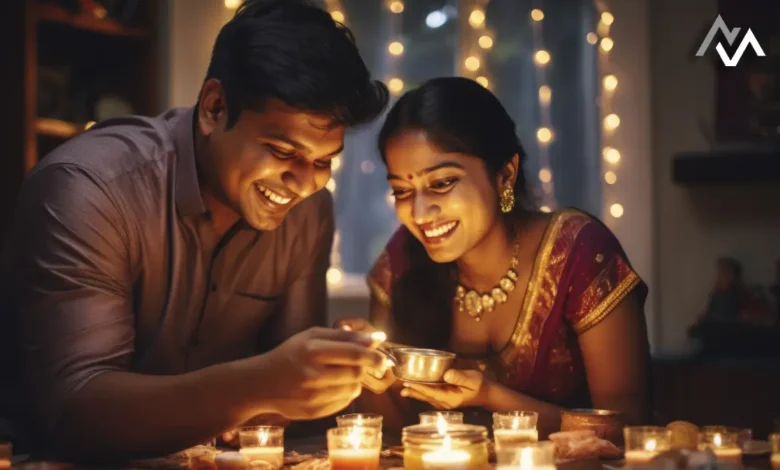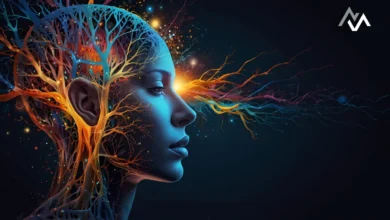The Story Behind Diwali: Celebrating Light, Love, and Legends

Diwali, also known as the “Festival of Lights,” is one of the most celebrated and beloved festivals in India, marked by the lighting of clay lamps, vibrant decorations, and joyous gatherings with family and friends. With roots reaching deep into history, Diwali is more than just a festival; it is a symbolic journey from darkness to light, ignorance to wisdom, and evil to good. Let’s uncover the story behind this luminous festival and explore the many legends and traditions that bring Diwali to life.
Origins of Diwali: Legends and Beliefs
The origins of Diwali vary across regions, but the central theme remains universal – the triumph of good over evil and the celebration of life. Diwali commemorates different legends depending on cultural backgrounds and regions, though it is widely associated with Hindu, Sikh, and Jain traditions.
The Story of Lord Rama and His Return to Ayodhya
The most widely known legend behind Diwali comes from the epic Ramayana. It tells the tale of Prince Rama, an avatar of Lord Vishnu, who was exiled to the forest for 14 years along with his wife Sita and brother Lakshmana. During this time, Sita was abducted by the demon king Ravana, leading to a fierce battle in which Rama ultimately defeated Ravana. Upon their victorious return to Ayodhya, the citizens celebrated by lighting oil lamps (diyas) to guide their way home. This triumphant moment is celebrated as Diwali, symbolizing the victory of light over darkness and good over evil.
The Legend of Lord Krishna and Narakasura
In certain regions of India, especially in the south, Diwali is celebrated as the day Lord Krishna defeated the demon Narakasura. Narakasura, a malevolent king, had captured 16,000 women and caused great suffering to people. Lord Krishna’s victory over Narakasura freed these captives, restoring peace and justice. The act is celebrated as the triumph of divine strength over malevolence, adding another layer of meaning to Diwali’s celebrations.
Goddess Lakshmi: The Bringer of Prosperity
Diwali is also celebrated in honor of Goddess Lakshmi, the deity of wealth, prosperity, and well-being. According to legend, Lakshmi emerged from the cosmic ocean during the churning of the sea (Samudra Manthan) and chose to bless humanity with abundance. During Diwali, people pray to Goddess Lakshmi to invite prosperity and happiness into their homes, believing she visits only those places that are clean, pure, and well-lit. The worship of Lakshmi during Diwali marks a special day of gratitude for the blessings received and the hope for an abundant future.
How Diwali Is Celebrated
Dhanteras: The Beginning of Diwali Festivities
Diwali begins with Dhanteras, a day dedicated to wealth and good fortune. On this day, people clean and decorate their homes, buy new kitchenware, jewelry, and items for the home as a sign of prosperity. The significance of Dhanteras lies in honoring Lord Dhanvantari, the god of health and healing, who emerged from the ocean with the nectar of immortality.
Naraka Chaturdashi or Choti Diwali
The day before Diwali is celebrated as Naraka Chaturdashi, which marks the victory of Krishna over Narakasura. It’s often known as “Choti Diwali” or small Diwali. People take ritualistic oil baths early in the morning, symbolizing the cleansing of sins and negativity.
Diwali Night: The Festival of Lights
On the main day of Diwali, families come together for the Lakshmi Puja, worshipping the goddess of wealth and prosperity. Homes are adorned with rows of clay lamps, candles, and electric lights, symbolizing the removal of darkness and ignorance. Firecrackers are burst to express joy, as people believe the noise drives away evil spirits.
Govardhan Puja and Annakut
The day after Diwali is known as Govardhan Puja in honor of Lord Krishna lifting the Govardhan Hill to save the people of his village from a torrential rainstorm. In many communities, this day is celebrated by preparing large feasts and offerings called Annakut, symbolizing gratitude and protection.
Bhai Dooj: Celebrating the Bond of Siblings
Diwali concludes with Bhai Dooj, a celebration dedicated to the bond between brothers and sisters. On this day, sisters pray for their brothers’ well-being, and brothers offer gifts to show their appreciation and love. It is a day that reaffirms family bonds and the significance of sibling relationships.
The Spiritual Significance of Diwali
Diwali goes beyond the myths and legends associated with it. It symbolizes self-reflection, new beginnings, and inner light. The lamps lit during Diwali represent the inner light that protects us from spiritual darkness, ignorance, and negativity. As people clean their homes and their minds, Diwali becomes an occasion for introspection, humility, and kindness.
Celebrating Diwali means embracing and sharing the light within us, spreading joy, and making the world a brighter, more compassionate place.




